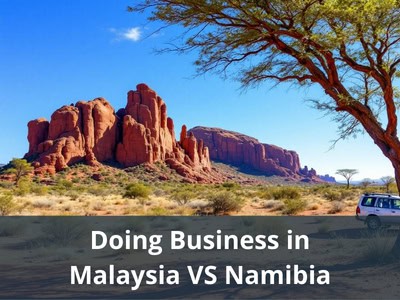Ready to Expand into India? Choose 3E Accounting Today!
Stay Secure, Stay Successful With 3E Accounting Services

Here’s a quick overview of the key differences for easy reference.
| Factor | Malaysia | Namibia |
|---|---|---|
| Business Environment | Structured, investor-friendly, efficient | Stable, smaller scale, slower bureaucracy |
| Corporate Tax Rate | 24% | 32% |
| Capital Gains Tax | Yes, varies by asset type | Yes, on certain gains |
| Ease of Incorporation | Digital, 3–5 days | Manual, 2–3 weeks |
| Business Costs | Low and scalable | Moderate to high in urban areas |
| Market Access | ASEAN, China, global trade partners | SADC, Southern Africa |

Selecting the right partner is crucial when it comes to starting a business in Malaysia. At 3E Accounting, we offer a comprehensive range of solutions designed to simplify the entire process of company incorporation in Malaysia. From ensuring compliance with local regulations to providing expert guidance tailored to your specific needs, we make the journey seamless.
For entrepreneurs looking to navigate Malaysia company registration or explore company setup in Malaysia, our team provides unmatched expertise and support. Additionally, our company incorporation services are tailored to help you succeed in the competitive business environment.
With a deep understanding of the region’s business landscape, we also provide resources for setting up businesses in Malaysia, ensuring that every step is clear and efficient. Whether you need assistance with corporate secretarial or company secretary services, we are here to help.
To explore our services or discuss your business needs, contact 3E Accounting. With our strong presence in Malaysia and a proven track record, we are your trusted partner for success in Asia.
Stay Secure, Stay Successful With 3E Accounting Services
Answer: Yes, Malaysia offers better infrastructure, faster digital incorporation, and broader trade access. You can explore this in the guide to starting a business in Malaysia.
Answer: Malaysia has a 24% corporate tax with incentives, while Namibia’s standard rate is 32%. Companies undergoing Malaysia company registration may qualify for sector-based tax reliefs.
Answer: Malaysia supports fast, digital company registration via company incorporation in Malaysia. Namibia’s process is manual and can take weeks.
Answer: Malaysia offers lower operational costs and stronger support services. Many investors prefer setting up businesses in Malaysia for sustainable growth.
Answer: Malaysia provides access to ASEAN, China, and global networks. Through company incorporation services, businesses can connect quickly to key Asian trade hubs.
Answer: Yes, most sectors allow full foreign ownership. Investors typically use company setup in Malaysia services to ensure smooth incorporation.
Answer: Yes, every Malaysian company must appoint a licensed secretary. Engaging company secretary services helps maintain statutory compliance.
Answer: The Companies Commission of Malaysia (SSM) oversees business incorporation and enforces corporate laws.
Abigail Yu
Author
Abigail Yu oversees executive leadership at 3E Accounting Group, leading operations, IT solutions, public relations, and digital marketing to drive business success. She holds an honors degree in Communication and New Media from the National University of Singapore and is highly skilled in crisis management, financial communication, and corporate communications.

